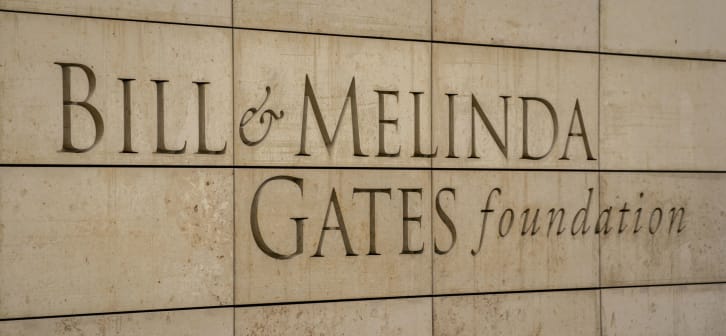Can Higher Ed Eliminate Race and Income As Predictors of Student Success?
Writer
Writer

- The Bill & Melinda Gates Foundation is funding a pilot program.
- The program aims to improve data collection and help eliminate race, ethnicity, and income as predictors of student success.
- Three HBCUs and predominantly Black institutions and seven Hispanic-serving institutions are in the cohort.
The Bill & Melinda Gates Foundation is taking on one of the toughest issues in higher education: the role race, ethnicity, and income play as predictors of student success.
The foundation is funding a pilot program with 15 member institutions of the American Association of State Colleges and Universities (AASCU). The program will implement and test different methods to eliminate factors that can hold back students of color and low-income students.
This week, the AASCU announced the 15 institutions that will be part of its Transformation Accelerator Cohort:
- Albany State University
- California State University, Fresno
- Central Connecticut State University
- College of Staten Island
- Metropolitan State University of Denver
- Pennsylvania State System of Higher Education/Bloomsburg University, Lock Haven University, Mansfield University
- SUNY Oswego
- Texas A&M University-Corpus Christi
- Texas A&M-Kingsville
- Prairie View A&M University
- Texas A&M University System
- Texas A&M University-San Antonio
- University of Hawai'iat Hilo
- University of Maryland Eastern Shore
- William Paterson University of New Jersey
This group includes two state systems, three historically Black colleges and universities (HBCUs) and predominantly Black institutions (PBIs), seven Hispanic-serving institutions (HSIs), and three American Asian and Native American Pacific-Islander-serving institutions (AANAPISIs). Combined, they serve about 120,500 students with an average Pell Grant eligibility of 48%.
All 15 institutions will be part of a two-year process, and the AASCU will provide support. During that time, each university will work toward the goal of eliminating factors that can inhibit student success.
The institutions will have access to resources including online modules and webinars. They will receive support from subject-matter experts in data analytics, equity, student success, advising, institutional transformation, and strategic and systems planning.
One of the key features of the program is data collection. The AASCU will help each organization build better data collection processes and use performance indicators to identify equity gaps.
"For over 50 years, AASCU has partnered with member institutions to deliver on the American promise of access, affordability, and educational opportunity," AASCU President Mildred García said in a statement. "The Transformation Accelerator Cohort articulates an equity imperative to help everyone see their role in ensuring success for Black, Latinx, indigenous and low-income students."
Participating institutions had to fill out a pre-application that assessed their readiness to take part in this program. Each was asked about their institution's faculty makeup and whether it mirrored the diversity of the student population. They were also asked if they had the capacity to track and monitor student progress.
The universities and colleges included in the cohort must assemble a campus team to help lead the program at each institution.
Feature Image: Bloomberg / Contributor / Bloomberg / Getty Images















